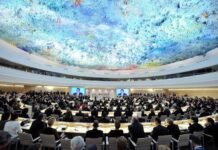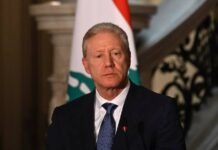Paris, 9 November 2023 (TDI): UNESCO’s efforts for gender equality in 2022–2023 aim to provide a roadmap for transformative work across its mandate.
The compounding global crises of the past two years necessitate structural solutions for sustainable and peaceful societies.
COVID-19 has caused unprecedented disruption in education, while biodiversity declines and conflicts persist.
Human rights violations, both online and offline, are on the rise. Gender equality must be central to multilateral action, as none of these crises can be solved by one country alone, and none are gender neutral.
The ethical imperative and human rights standards demand gender equality. Despite growing demand for equity and justice, the UN predicts it will take nearly three centuries to close the gender gap.
This hinders UNESCO’s mandate, as gender inequality directly impacts all its areas of work.The report showcases UNESCO and its partners’ concrete efforts in 2022-2023 to advance gender equality.
It has addressed inequalities in education, empowered women in science and technology, fought against gender-based violence, bridged the digital gender gap, and promoted gender equality in crisis contexts.
UNESCO’s Global Priority on Gender Equality is more pertinent than ever. Together, we can expand its reach and multiply transformative results for the benefit of everyone worldwide.
The Director-General of UNESCO emphasized the urgent need to accelerate efforts for gender equality. The current situation is concerning, with progress being slow.
The COVID-19 pandemic and the situation in Afghanistan have led to significant setbacks, particularly for girls’ education.
UNESCO is actively working to promote girls’ access to education, supporting initiatives to combat gender inequality in various fields, and advocating for the rights of women, including journalists.
The report emphasizes that there is still much work to be done, and waiting 300 more years for progress is not an option.
Education is a fundamental human right and a cornerstone for peace and sustainable development. It empowers individuals and communities, improving health, mobility, and leadership while reducing vulnerability.
Also read: UNESCO Anti-Bullying Campaign to Create Schools Safe
Despite progress, gender norms continue to hinder both girls and boys from fully participating in education. Vulnerable girls and women still face exclusion, and achieving universal primary education is not projected until 2050.
Gender disparities persist, with varying rates of progress in different countries. Women still make up the majority of global non-literates.
Gender stereotypes and discrimination are significant barriers to education. Social structures, poverty, early marriage, and pregnancy are among the reasons girls drop out of school.
Boys also face challenges, with factors like expectations at work and gender-related violence affecting their education. The Transforming Education Summit in 2022 highlighted the need for gender-transformative education to promote broader gender equality.
Tackling gender segregation in fields like STEM education is crucial. Girls are underrepresented, despite performing well in mathematics and science.
This gender disparity is alarming, especially considering the importance of STEM careers for future employment.
The lack of gender equality in science can hinder a country’s development. Efforts must be made to prepare adolescents for new career options and necessary skills training.
The COVID-19 pandemic further exacerbated challenges in education, forcing millions of students out of school.
UNESCO’s vision for 2022-2023 includes ensuring equal access to quality gender-transformative education, developing gender-responsive curricula, and expanding STEM education opportunities for girls and women.
This vision is implemented through global policy change, data dissemination, and translating standards for impact at the country level.
Iffat Masood is Contributor and Content writer on THE DIPLOMATIC INSIGHT, and also Ambassador from IAMCR. She is perusing her PhD. from UAB Barcelona, Spain in Audio-Video Communications and Advertising.








